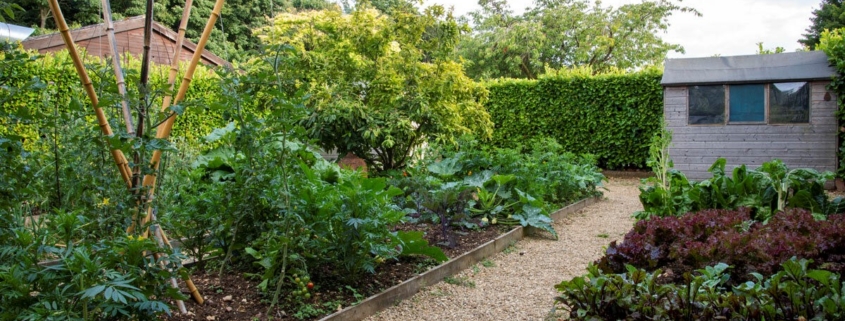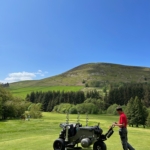Organic September : What does organic look like at Barnsdale Gardens
‘Organic September’ is a great to chance to celebrate all of the ways that we can work with nature in the most sustainable ways when gardening.
This is the month where we can all take a look at the ways we work in our gardens, and learn how we can make the most of organic techniques.


Organic September : What does organic look like at Barnsdale Gardens
Barnsdale Gardens continues to be grown and maintained using peat and chemical free techniques, as it has been for over 30 years. Nick Hamilton, the owner of the gardens, is a champion of the pioneering gardening first used by his father Geoff Hamilton, these organic principles remain today.
What exactly is organic gardening?
Organic gardening involves working with nature as much as possible. This means that artificial chemicals and anything else that is harmful to the environment and wildlife is rejected. This should be a holistic approach, meaning that everything from the soil upwards should lead to supporting the ecosystem of the garden and plants.
Growing organically, small steps at a time
The Barnsdale team never use pesticides and work as organically as possible using natural pest control. There are many ways to achieve this but the best one is to attract wildlife into your garden, such as birds, hedgehogs, frogs, ladybirds, hoverflies, etc, to feed on your pests. You can supplement this approach by also using essential oils which trap or deter pests (coconut and peppermint oil is one), or by using Nematodes which are microscopic worms that naturally get rid of garden pests.
The team take a view that working with nature is much more preferable than working against it. And example of this is when there is sometimes a slight yellowing of the leaves of seedlings and potted plants. This can be a sign of a lack of nitrogen. The team use a home-made nettle feed for supplementing this and also sometimes use a seaweed feed too.
Keep an eye on the weather!
The changing weather patterns could be a reason for looking at alternatives in the types of plants that we grow. With the warmer, but also often damper UK summers coming to the fore, fungal diseases can become a pesky problem. Damp weather encourages fungal diseases such as potato and tomato blight, rose blackspot, mildew and grey mould. Over the years the breeding of disease resistant varieties has resulted in a whole host of superb choices when it comes to veg and fruit. Choosing a blight resistant tomato variety, for example, also has the added benefit of allowing more successful outdoor growing, when possibly you only grew toms inside a greenhouse before.
Try, try and try again
As with peat free gardening, organic gardening can often be a case of trial and error. Baby steps can grow into bigger steps, once the intention is there gardeners can learn many tips and tricks which are suitable for them and their garden environment.
There’s plenty to see and do all year round at Barnsdale Gardens!
For the latest industry news visit landscapingmatters.co.uk/news
Get all of the big headlines, pictures, opinions and videos on stories that matter to you.
Follow us on Twitter and Instagram for fun, fresh and engaging content.
You can also find us on Facebook for more of your must-see news, features, videos and pictures from Landscaping Matters




